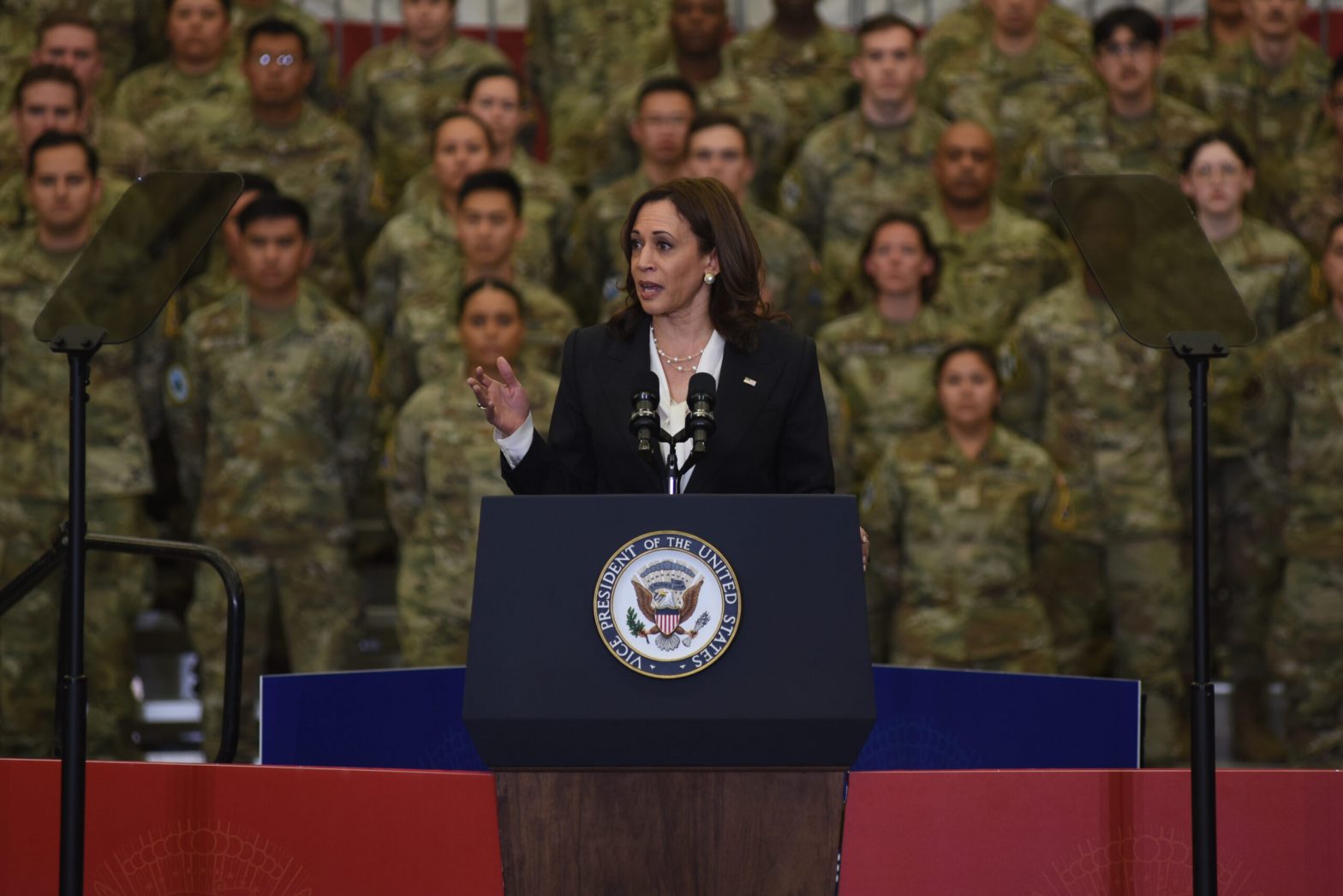As a second session of a United Nations working group on reducing space threats approaches, US government officials say they’re looking for ways to encourage more countries to back a ban on anti-satellite weapon tests.
Vice President Kamala Harris announced recently that the United States would refrain from conducting direct-ascent anti-satellite (ASAT) tests, calling such debris-generating activities “reckless and irresponsible.” She called on other nations to also halt such tests.
Her speech, officials later said, was timed to influence discussions at the first meeting of a UN Open-Ended Working Group (OEWG) on norms of behavior for reducing space threats held in May in Geneva. During that meeting Canada announced that it would join the United States in the ASAT testing ban. In July, the New Zealand government announced that it, too, would commit not to test direct-ascent ASATs. Neither country had developed or were planning to develop such weapons.
Eric Desautels, acting deputy assistant secretary for arms control, verification and compliance at the State Department, said in August panel discussion organized by George Washington University’s Space Policy Institute and The Aerospace Corporation that the timing of the ASAT test ban announcement had the desired effect.
“I think the timing and our use of the norm did exactly as we planned,” he said. “What was clear was that there was a shared concern in the room regarding the indiscriminate nature of the debris created by ASAT missile testing, even of some of those countries weren’t comfortable criticizing countries
With the second OEWG session scheduled for the week of Sept. 12 in Geneva, Desautels said the U.S. government was looking at ways to “multilateralize” the test ban, including both non-binding and legally binding mechanisms.
“Depending on the feedback that we get from allies and partners over the next couple of months, there are two approaches that we may take to multilateralize this commitment,” he said. One would be a non-binding U.N. General Assembly resolution as soon as its next session from September to December.
“Such a resolution would allow countries to go on record regarding their support, creating that shared agreement among the majority of U.N. member states, while increasing political pressure on countries that have plans for future ASAT tests,” he said.
A second approach, according to Desautels, would be a legally binding agreement of some kind. “I view that as a much longer term effort,” he said.
One issue, he said, is that US policy requires space arms control agreements be equitable, verifiable and in US national security interests. A ban on ASAT testing may meet those criteria.
“It’s verifiable. It’s attributable. There’s very little ambiguity about who did it,” said Chirag Parikh, executive secretary of the National Space Council, said of the ASAT test ban in a keynote at the event.
“We think that was a very good initial movement from the United States,” he said of the ban. “Also, I believe it demonstrates US leadership by taking the first step.”
The near-term focus, though, is on establishing a ban on ASAT testing as a norm of behavior. “This is a first step,” Desautels said. “There are potentially other steps that could eventually get you to a legally binding arms control agreement, but these are slow, painful processes. Diplomacy doesn’t move very quickly, so let’s address things that we can, potentially through the UN.”











